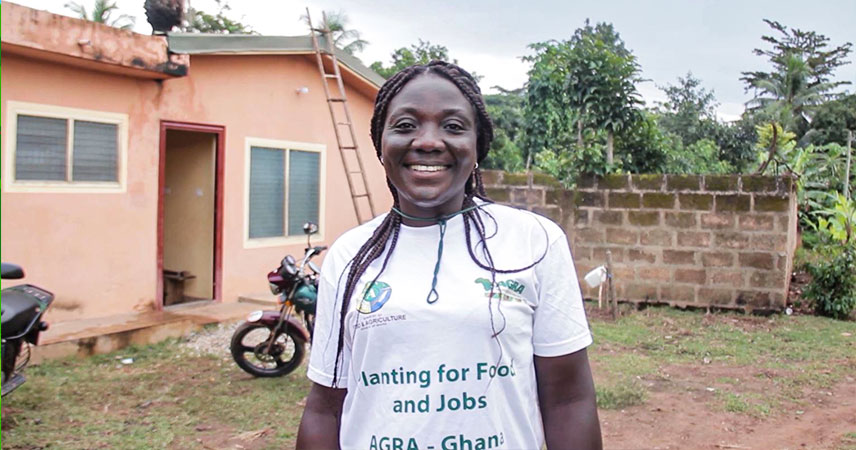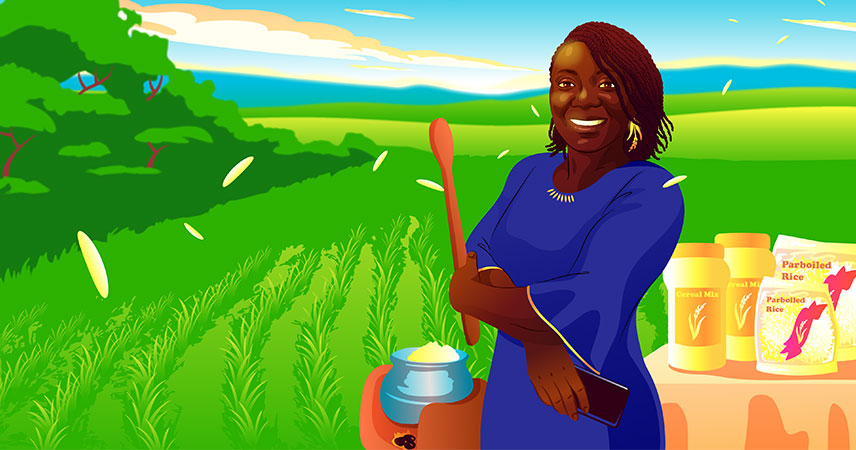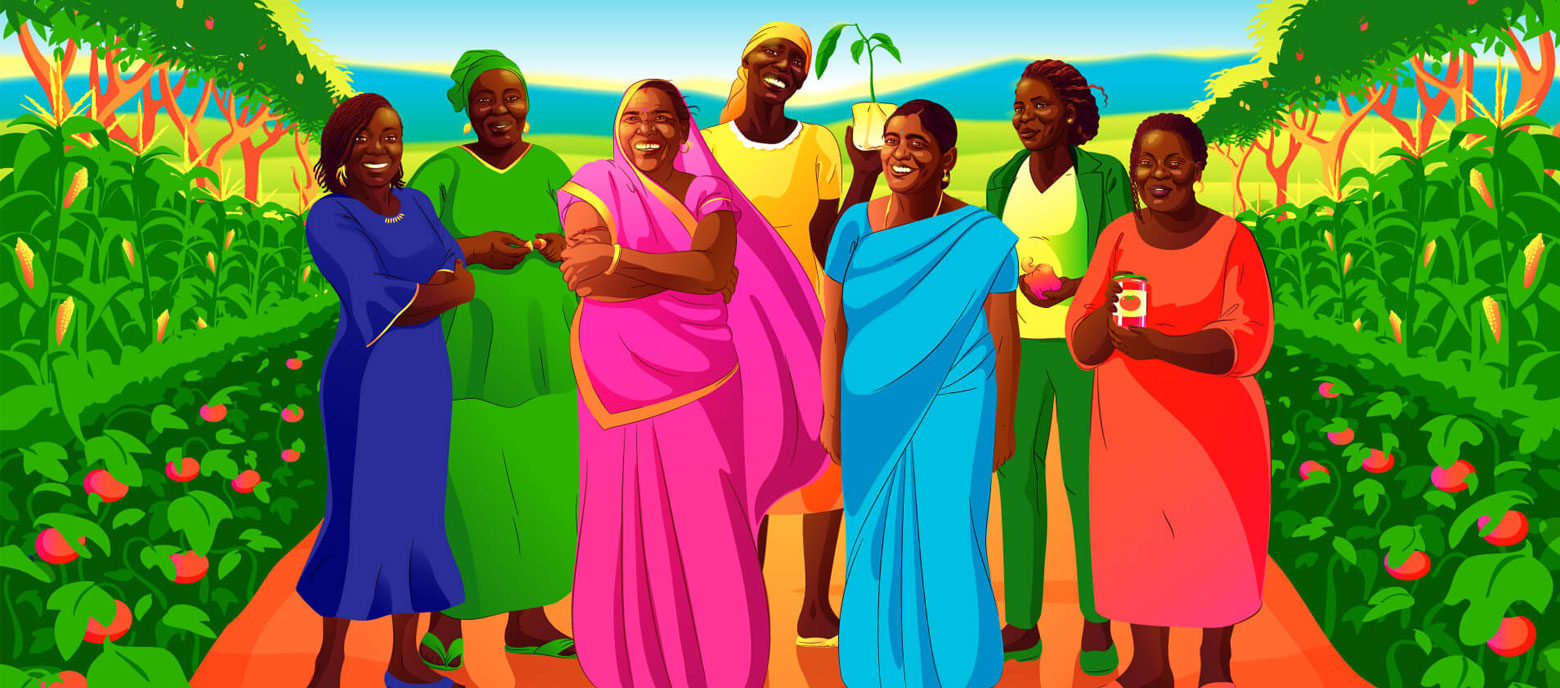Interview
‘We see what women have achieved’

Ms Adade, what role do women in Ghana play in agriculture?
They play a central role. Around 95 per cent of all women in my region in northern Ghana are small farmers. They produce almost everything we eat in rural areas. Food products such as rice, cocoa and vegetables are sold by women at the markets – and at home they are also in charge of cooking. This is how my grandmother lived, too, and I have memories of her producing cocoa.
What challenges do women face?
In our region, women still do not own any land. In this respect, we are dependent on men. Also, women in villages usually have no money or agricultural equipment. These are major challenges for us.
Is it tradition or is it enshrined in law that women cannot own land?
By law, I can buy land for sale as a woman. But I cannot inherit it from my father, nor can I pass it on to my two children. Our customs and traditions do not allow this.
What is the situation like in Ghana in terms of food security?
We have very fertile soil here in Ghana and really nobody should go hungry. There is enough food produced, but many people are unaware of how to make tomatoes and other vegetables keep longer. Unfortunately, this is why too much is thrown away. Not because of the heat, but because in many villages little is known about food processing, and the equipment required is not available. People want to plant as much as possible, but often don’t know what to do next.
In 2020 you were named a ‘Game Changer’. What does this award mean to you?
I was delighted and I am extremely proud. I have encouraged many women to join forces in groups to learn and to work better together. Some of them did not know how to process and market food. I have now trained around 2,000 women. I started in my village and now work throughout the region.
And you are continuing with your women’s cooperative?
Yes, because we see what women can achieve when they know more about how to bring their products to market. They can earn more and are able to pay their children’s school fees. I also accompany women farmers to the city and show them the bank. I teach them how to manage money, so that they can put some aside.
How do men react to your work?
At first, men were uncomfortable and suspicious of me. I explained to them that I was helping women to better support their families. As soon as men see progress and, above all, additional income, they are then also willing to accept the changes. They are now happy for their wives to learn more.
What do you wish for the future?
I would like to expand my work and train even more women in agriculture in Ghana. It’s my passion. The impact on society is important to me. I would like rural women to have the same self-confidence as women in the cities.

Janet Adade (47) is a farmer and manager of an agro-processing enterprise in Ghana. She shares her knowledge with members of the women’s cooperative Madowofa, which she founded. For example, she advanced the local production and sale of high-quality rise using the ‘parboiling process’. In 2020, GIZ nominated Adade for the Game Changers – Women in Agriculture award. With this award, BMZ aims to highlight the central role played by women in rural development.
December 2021
